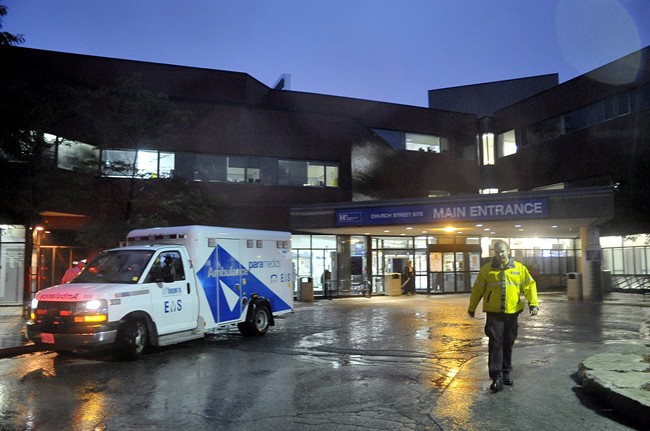TORONTO – A hospital doctor who failed to detect meningitis in a patient who died from the infection was professionally negligent, Ontario’s top court affirmed Monday.

In upholding a negligence finding against Dr. Virat Joshi, the Ontario Court of Appeal said the evidence clearly showed Mark Barber was displaying symptoms the doctor should have noticed and investigated.
The Appeal Court also rejected Joshi’s argument that Barber would likely have died – even with proper treatment for meningitis.
“Throughout his testimony, Dr. Joshi downplayed the severity of Mr. Barber’s presenting condition,” the Appeal Court ruled. “Most telling is that Dr. Joshi attempted to minimize the significance of his own recorded observation that Mr. Barber was ‘confused’.”
Barber, 46, died in February 2006 at Humber River Regional Hospital in west-end Toronto from pneumococcal bacterial meningitis. His widow and two daughters sued.
Court records show Joshi failed to consider the possibility Barber was suffering from meningitis when he examined the patient, and took no measures to rule out the possibility.
Instead, Joshi believed Barber was likely suffering from pneumonia, prescribed antibiotics, and discharged him. Barber was only properly diagnosed 24 hours after Joshi had first examined him, but it was too late to save him.
READ MORE: Woman shares shocking photos to raise awareness of meningitis
- Canadian man dies during Texas Ironman event. His widow wants answers as to why
- ‘Sciatica was gone’: hospital performs robot-assisted spinal surgery in Canadian first
- Canadians more likely to eat food past best-before date. What are the risks?
- Treatment from female doctors leads to lower death rates, study finds
Superior Court Justice Mary Sanderson found after a trial last year that Joshi had been negligent, and that Barber would likely have survived the infection without any serious consequences with proper diagnosis and treatment.
In coming to her conclusion, Sanderson noted Barber’s overall condition – especially his mental status – should have alerted Joshi to the possibility of meningitis, especially since a doctor who had examined Barber before he went to hospital had noted the patient was feverish and had a “decreased level of consciousness.”
“Barber’s medical records contained numerous entries consistent with a patient experiencing a decreased level of consciousness or altered mental status,” the Appeal Court said in its decision. “A history of an altered level of consciousness, coupled with a fever, could signify inter-cranial pressure in the brain or meningitis.”
READ MORE: Canadian family who lost daughter to meningitis shares tragic story to raise awareness
One expert for the plaintiffs testified at trial that Barber likely had bacterial meningitis by at the time Joshi first examined him given his fever, lowered consciousness, disorientation, and ashen appearance. At the very least, another expert testified, Barber was obviously gravely ill at that point and should have been admitted to the hospital, not discharged.
In his defence, Joshi admitted failing to consider meningitis as a possibility but argued Barber showed no signs of the illness, even though he had made a note in his initial examination that the patient was “confused.” The Appeal Court, however, sided with Sanderson in rejecting Joshi’s arguments and attempts to minimize the significance of noting the patient’s confusion.
Barber’s family were also awarded $50,000 to cover the costs of the appeal.



Comments